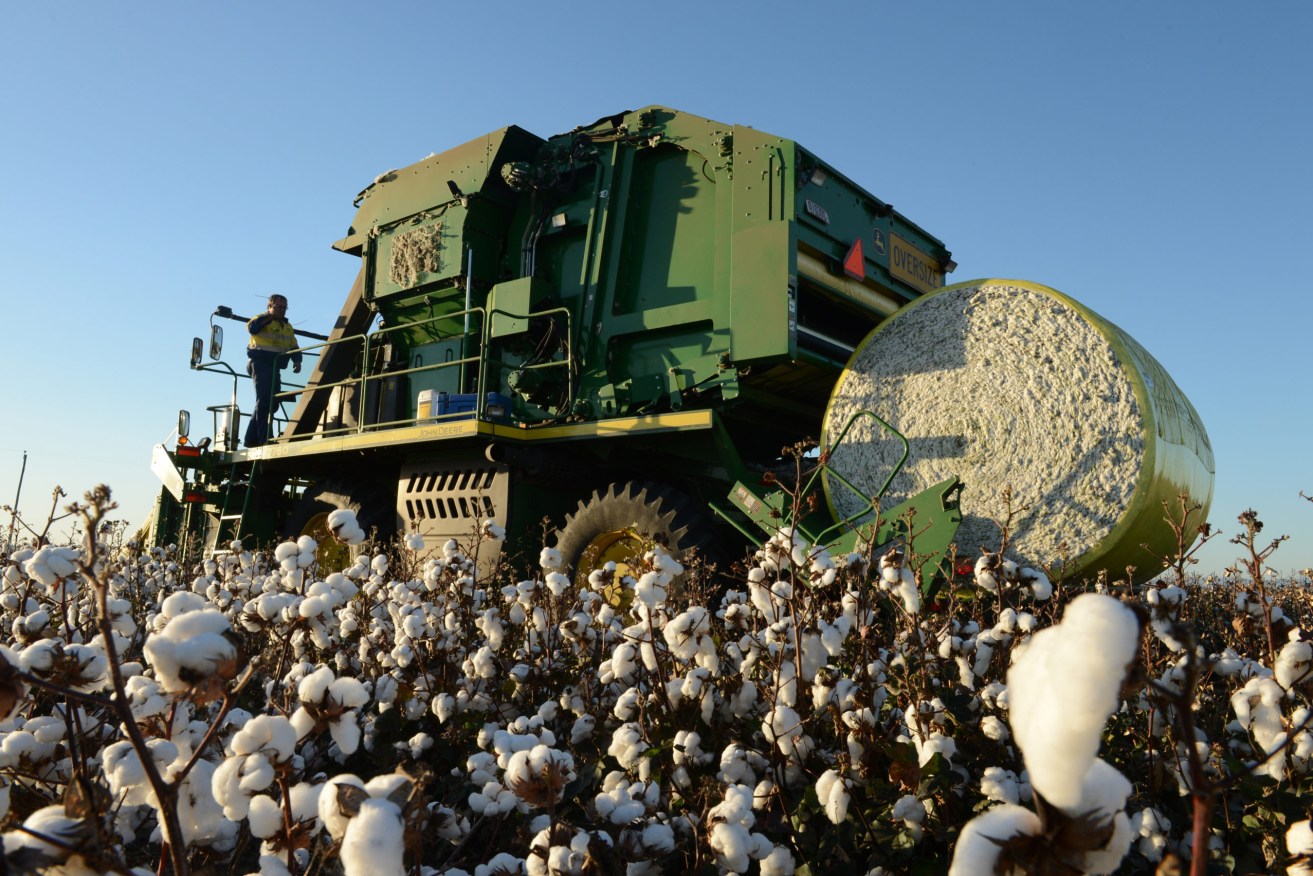China looks to unravel Australian cotton exports as trade targeting continues
Australian cotton growers could be the latest victims of increasingly bitter trade tensions with China which have seen crippling tariffs placed on Australian barley exports, with wine also in the firing line.

Photo: AAP/Dave Hunt
Chinese spinning mills have been told to stop buying Australian cotton, and the industry could soon face tariffs of up to 40 per cent.
Cotton millers in China are given an import quota each year and have been told they might not receive the allowance if they buy from Australia.
Australia sells about $800 million worth of cotton to China each year and industry groups are disappointed by the deterioration in export conditions.
Cotton Australia and the Cotton Shippers Association are working with the federal government to investigate what is going on.
“The Australian cotton industry will continue having meaningful conversations with stakeholders to fully understand this situation,” they said in a joint statement on Friday.
“We will continue working with the Australian government to respectfully and meaningfully engage with China to find a resolution.”
Trade Minister Simon Birmingham is seeking clarity from Chinese officials.
“Our cotton exporters have worked hard to win contracts and establish themselves as reliable suppliers of high quality cotton in the Chinese market, which is an important input for many Chinese businesses,” he told AAP.
“China should rule out any use of discriminatory actions against Australian cotton producers.
“Impeding the ability of producers to compete on a level playing field could constitute a potential breach of China’s international undertakings, which would be taken very seriously by Australia.”
China has targeted Australian exports as diplomatic tensions increase between the two countries.
This week, it emerged that it was enforcing a go-slow on importing Australian coking and thermal coal.
In May, it slapped an 80 per cent tax on inbound Australian barley, sending the local industry into crisis mode and seeking other markets.
Australia is a major exporter of barley, representing more than 40 per cent of the world’s malting barley trade and 20 per cent of the feed barley trade, with China its biggest malting barley customer.
South Australia produced a little over 2 million tonnes of barley last season, about a quarter of the national production and is the second largest barley-producing state behind Western Australia.
Three months after the tariffs hit Australian barley, Argentine barley producers said they were on track to send at least 250,000 tonnes of barley to China this year and 380,000 tonnes in 2021 – compared with virtually nothing in 2019.
In August, China announced it was launching an anti-dumping investigation into Australian wine imports.
China is Australia’s largest wine export market with $1.2 billion worth shipped last financial year.
South Australia produces about half of Australia’s wine. China said the probe would investigate 10 major exporters including Treasury Wine Estates, the maker of leading SA-made brands including Penfolds and Wolf Blass.
According to the SA Wine Industry Association, at least 300 local wine companies export to China.
-with AAP




